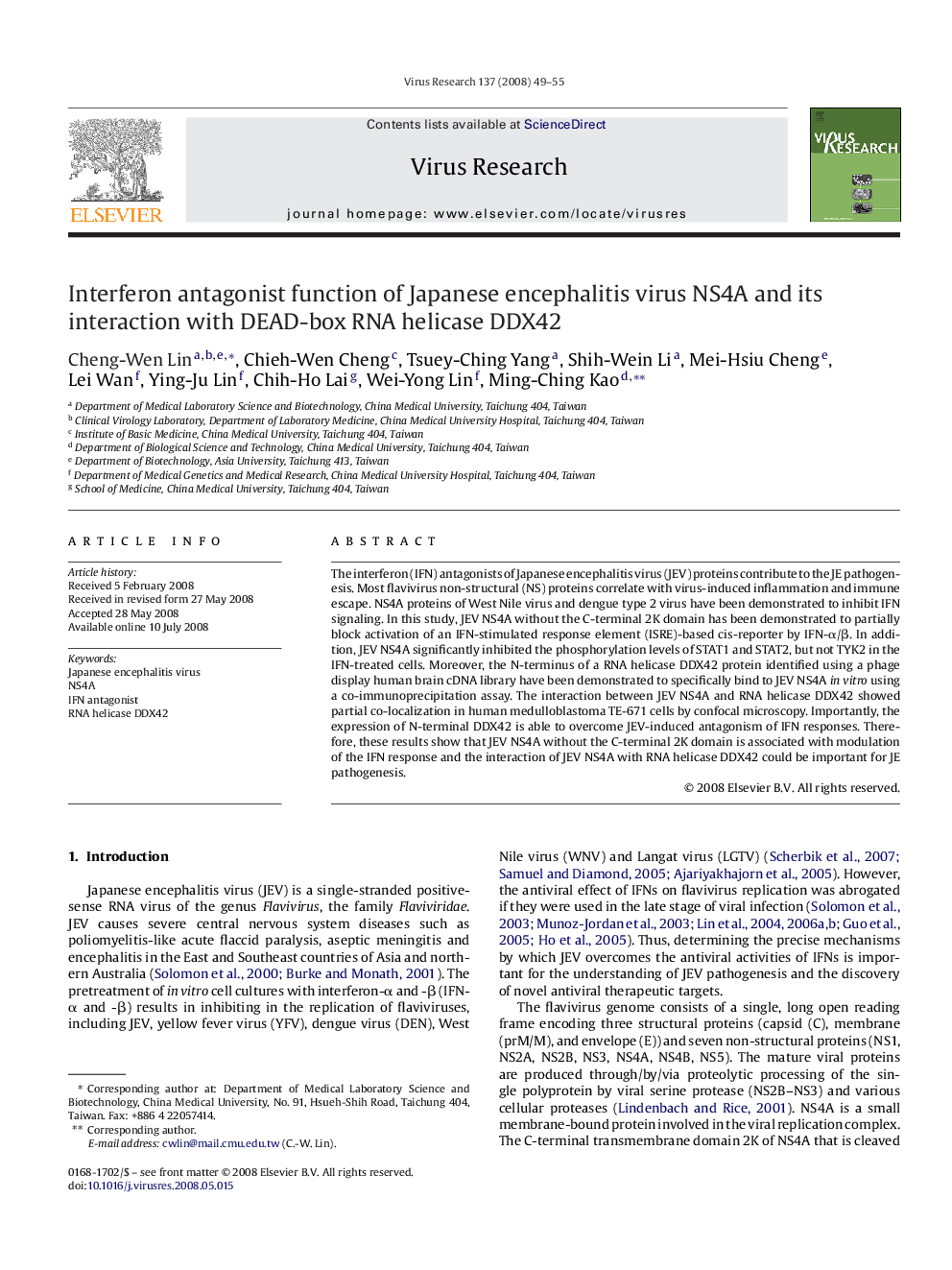| Article ID | Journal | Published Year | Pages | File Type |
|---|---|---|---|---|
| 3430326 | Virus Research | 2008 | 7 Pages |
The interferon (IFN) antagonists of Japanese encephalitis virus (JEV) proteins contribute to the JE pathogenesis. Most flavivirus non-structural (NS) proteins correlate with virus-induced inflammation and immune escape. NS4A proteins of West Nile virus and dengue type 2 virus have been demonstrated to inhibit IFN signaling. In this study, JEV NS4A without the C-terminal 2K domain has been demonstrated to partially block activation of an IFN-stimulated response element (ISRE)-based cis-reporter by IFN-α/β. In addition, JEV NS4A significantly inhibited the phosphorylation levels of STAT1 and STAT2, but not TYK2 in the IFN-treated cells. Moreover, the N-terminus of a RNA helicase DDX42 protein identified using a phage display human brain cDNA library have been demonstrated to specifically bind to JEV NS4A in vitro using a co-immunoprecipitation assay. The interaction between JEV NS4A and RNA helicase DDX42 showed partial co-localization in human medulloblastoma TE-671 cells by confocal microscopy. Importantly, the expression of N-terminal DDX42 is able to overcome JEV-induced antagonism of IFN responses. Therefore, these results show that JEV NS4A without the C-terminal 2K domain is associated with modulation of the IFN response and the interaction of JEV NS4A with RNA helicase DDX42 could be important for JE pathogenesis.
